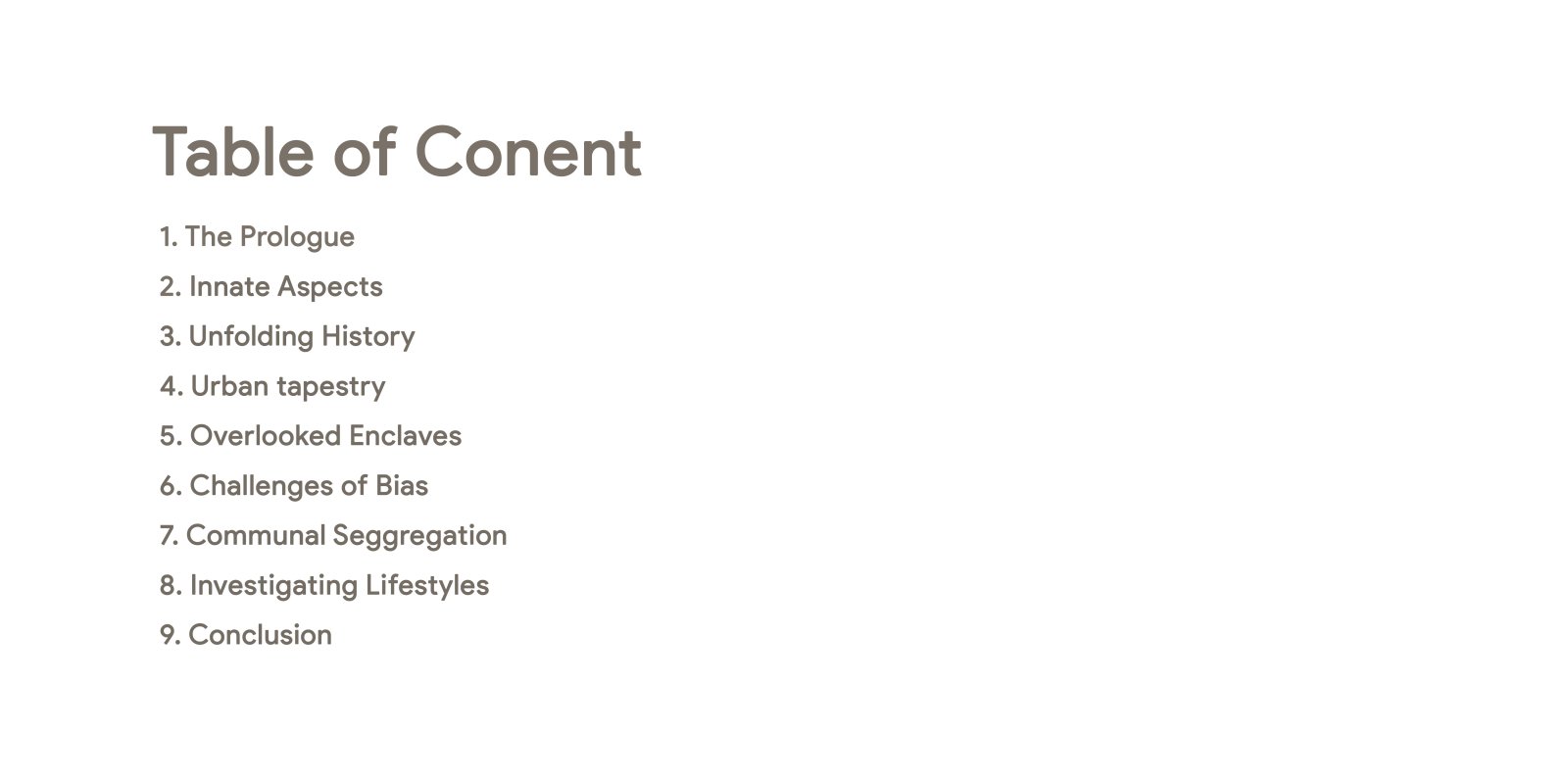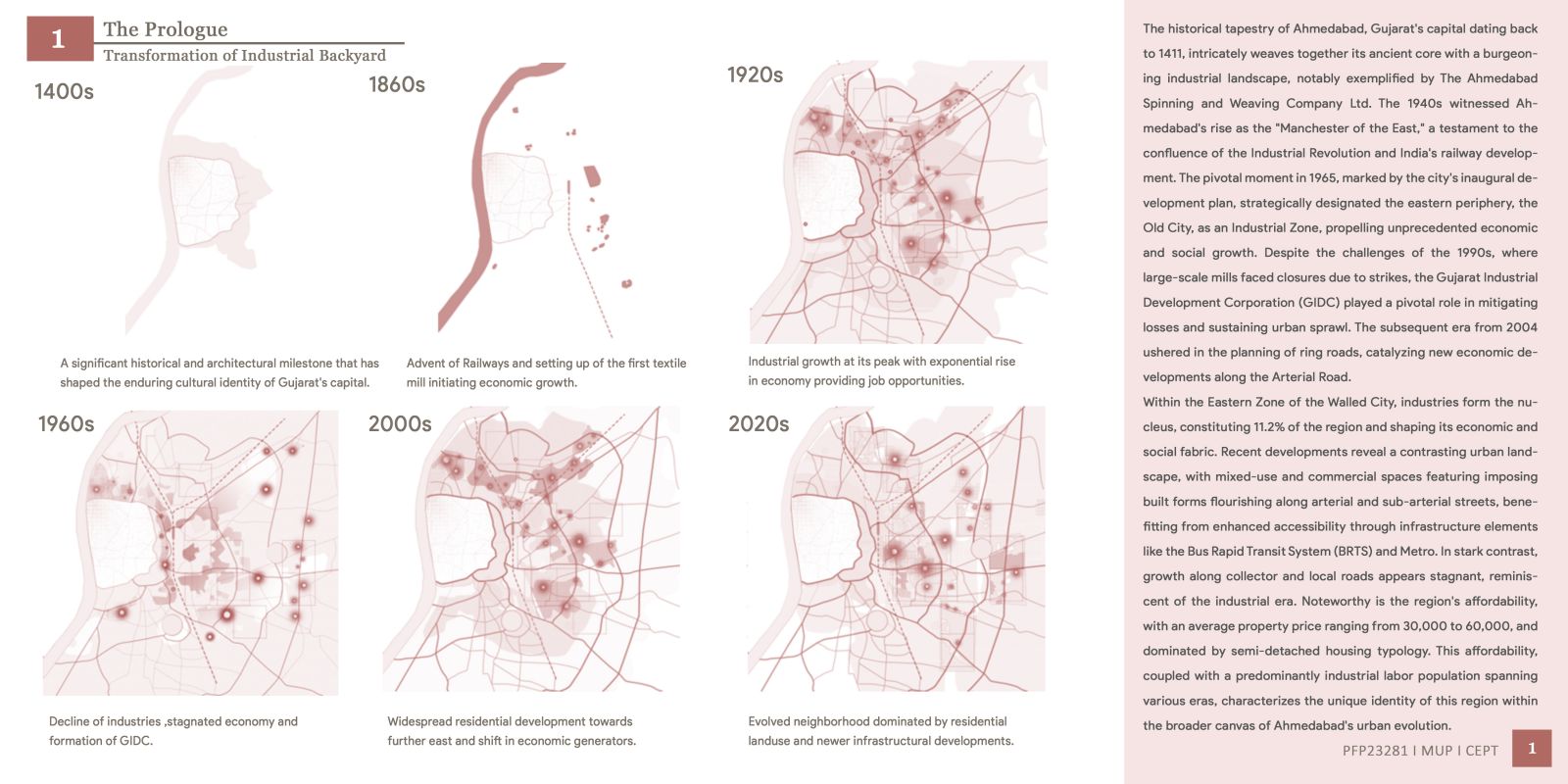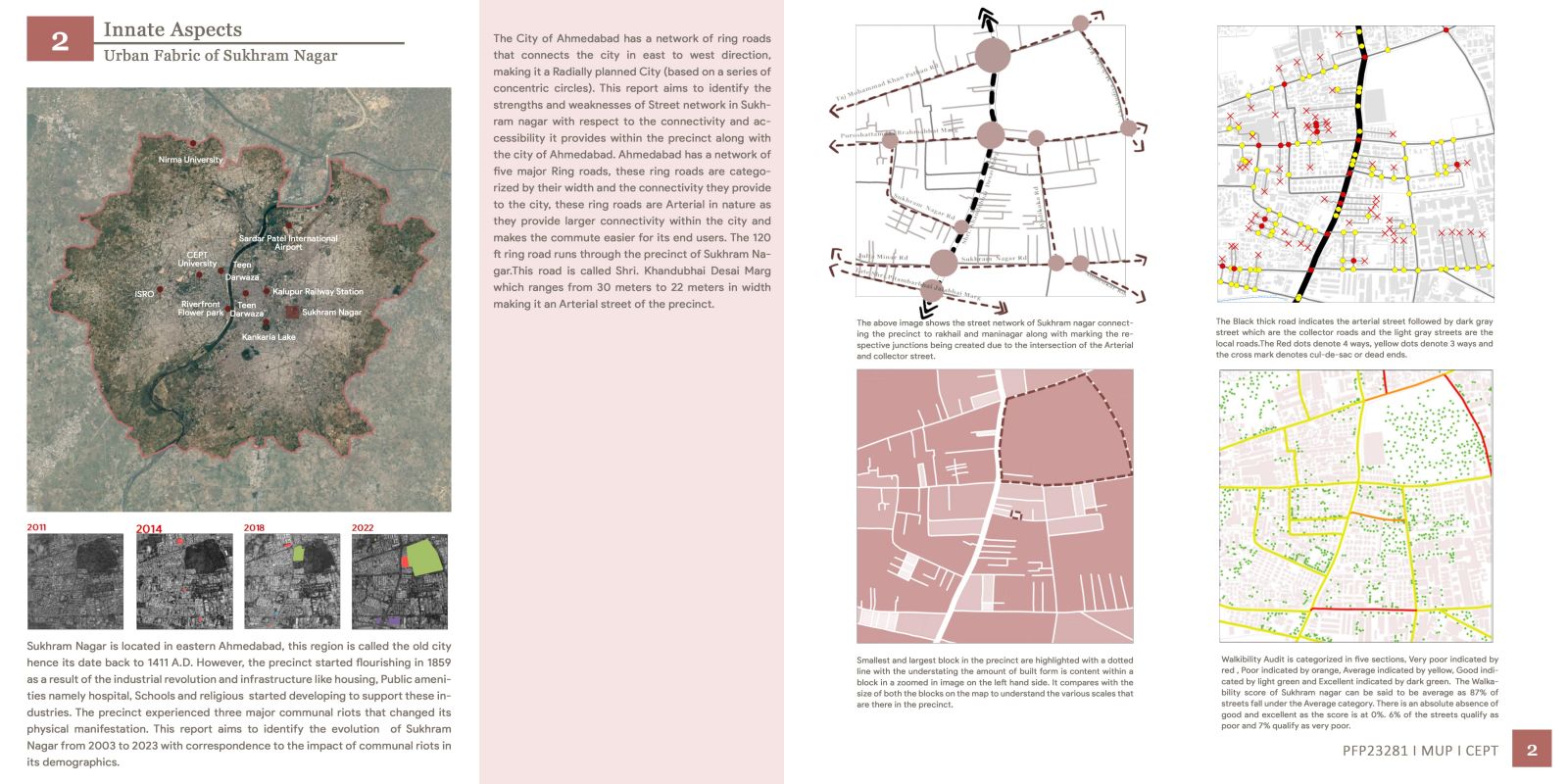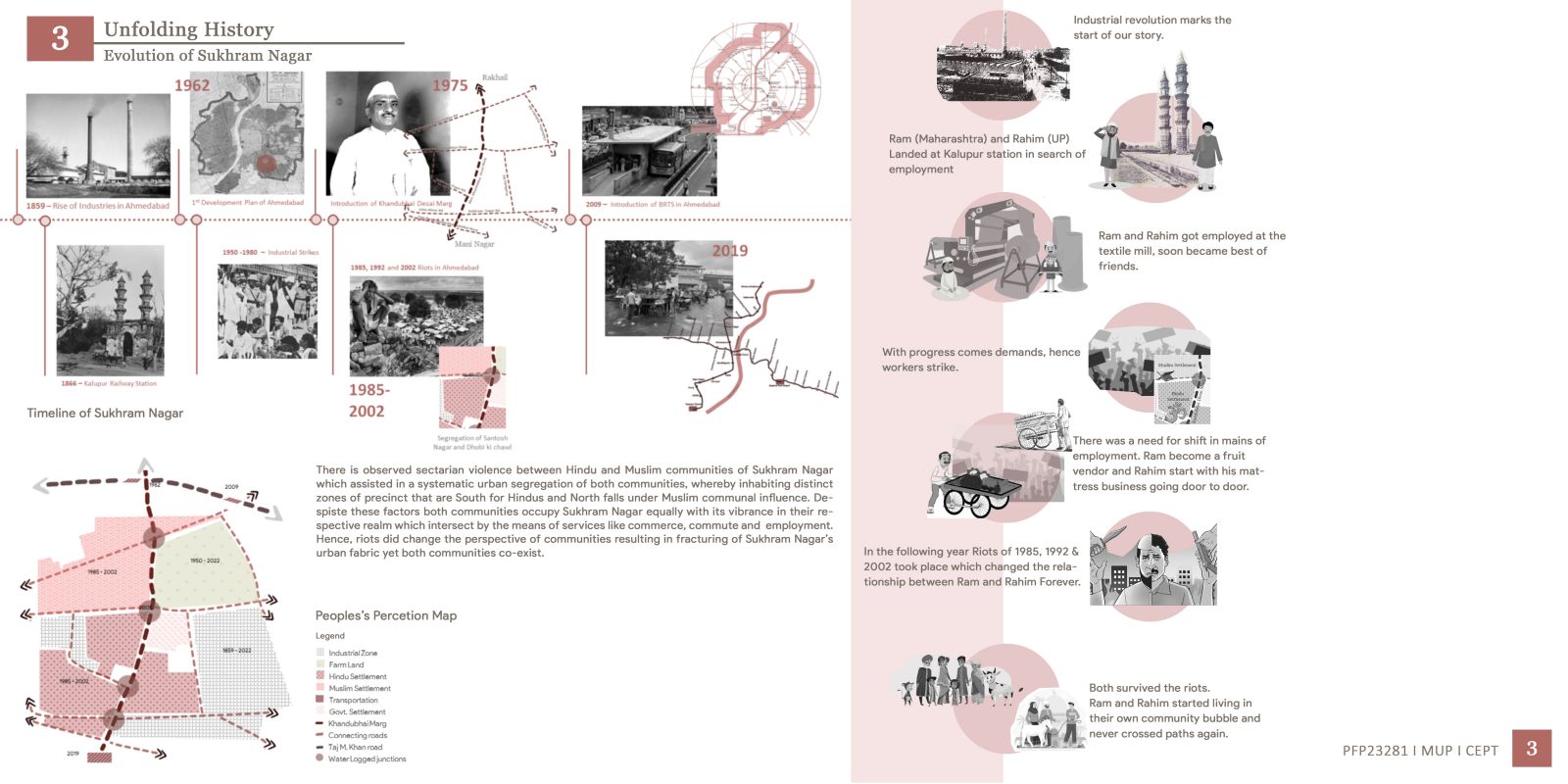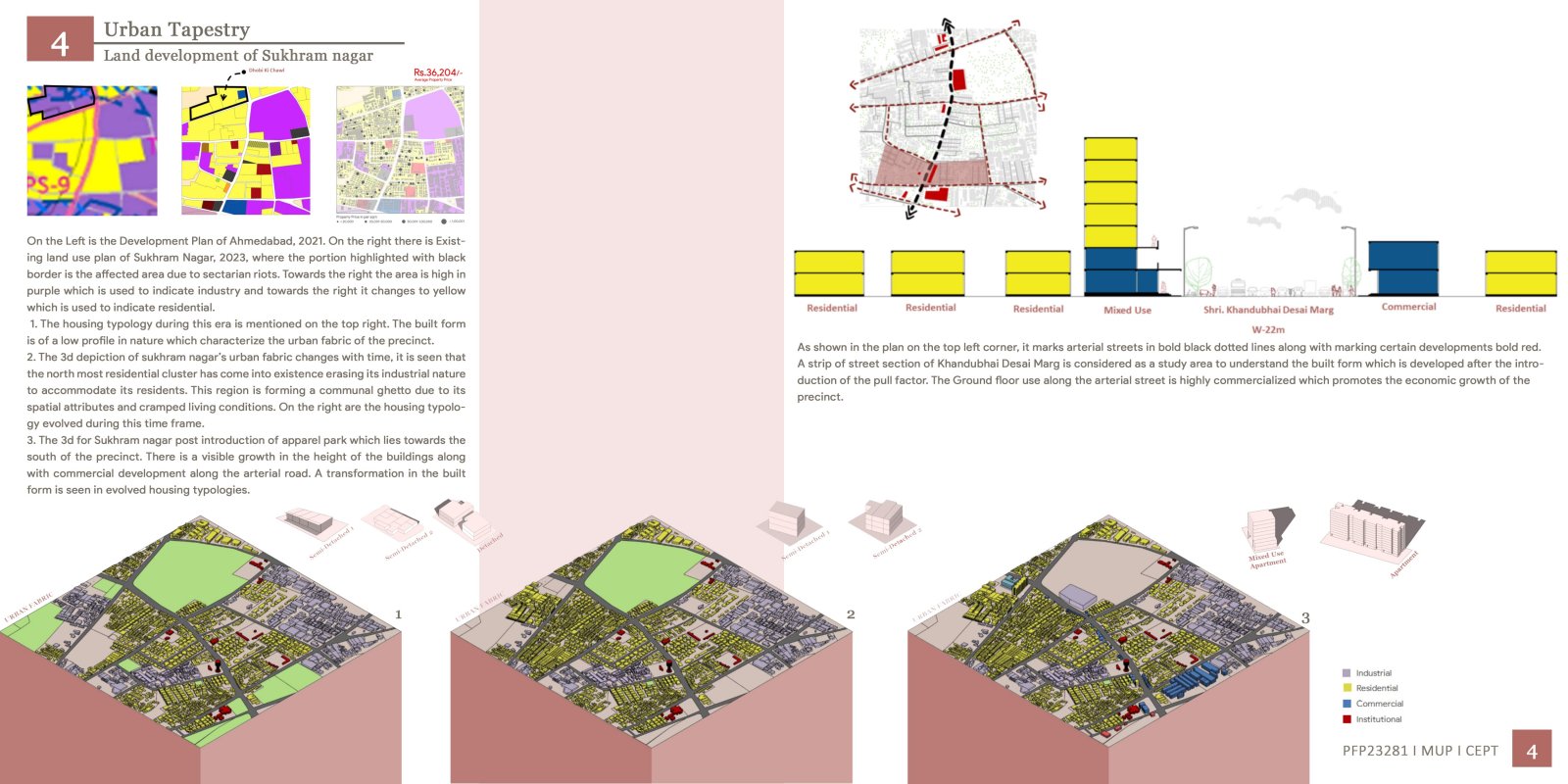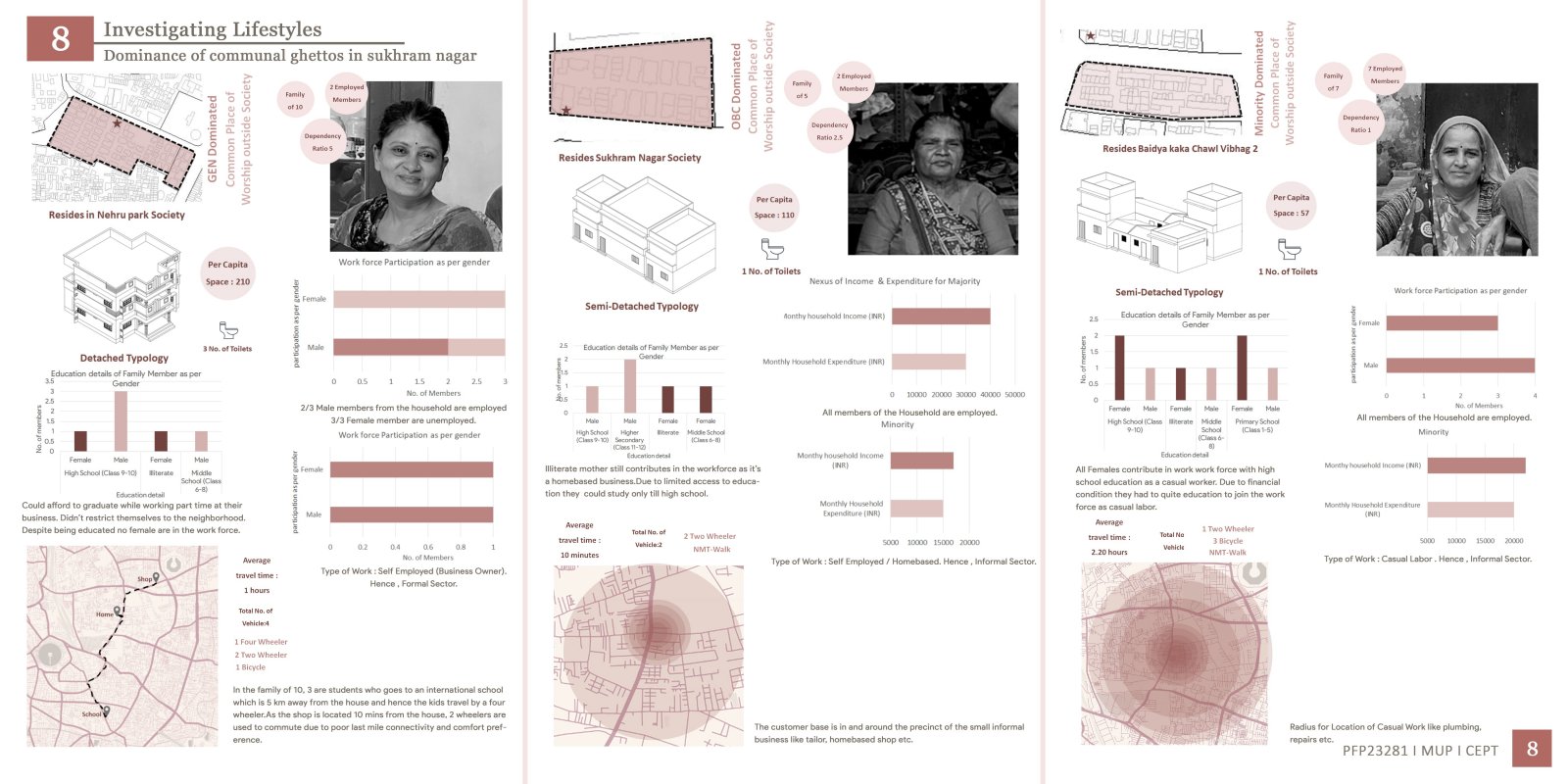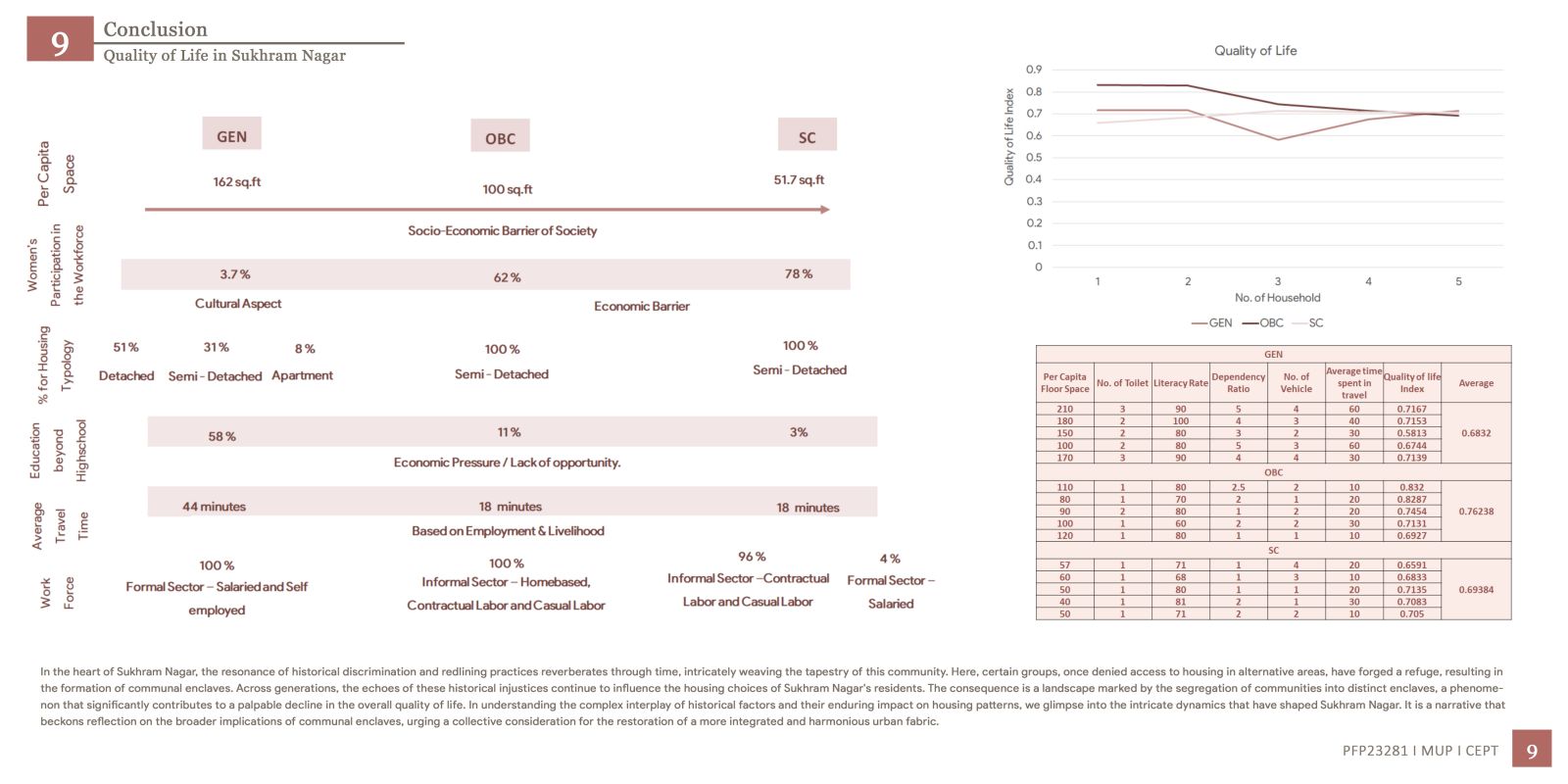- Student JADHAV PRERNA PRAKASH
- Code PFP23281
- Faculty Planning
- Tutor/s Anil kumar Roy,Rutul Joshi,Tarun Patel,Umesh Shurpali,Maulik Chauhan,Arjun Joshi,Rushil Palavajjhala ,Jay Bhanushali,Ravi Sannabhadti,Nitika Bhakuni,Tarunkumar Sharma
Communal ghettos in Sukhram Nagar paint a complex picture of urban dynamics. Shaped by historical discrimination and redlining practices, these enclaves have emerged as a result of denied access to housing for certain groups. The ramifications extend across generations, influencing housing choices and perpetuating the segregation of communities. Despite the absence of dedicated public open spaces, the streets and junctions, as accessible nodes, serve as vital public entities. The standard of living is further marginalized as evidenced by the community's reliance on municipal water due to economic constraints preventing the affordability of groundwater wells. The area's neglected waste management situation reflects a governance issue exacerbated by the stigma of communal violence, requiring a comprehensive approach involving community participation and policy interventions. Sukhram Nagar's communal ghettos encapsulate a narrative of historical legacy, present challenges, and the potential for positive change through informed urban planning and social initiatives.
